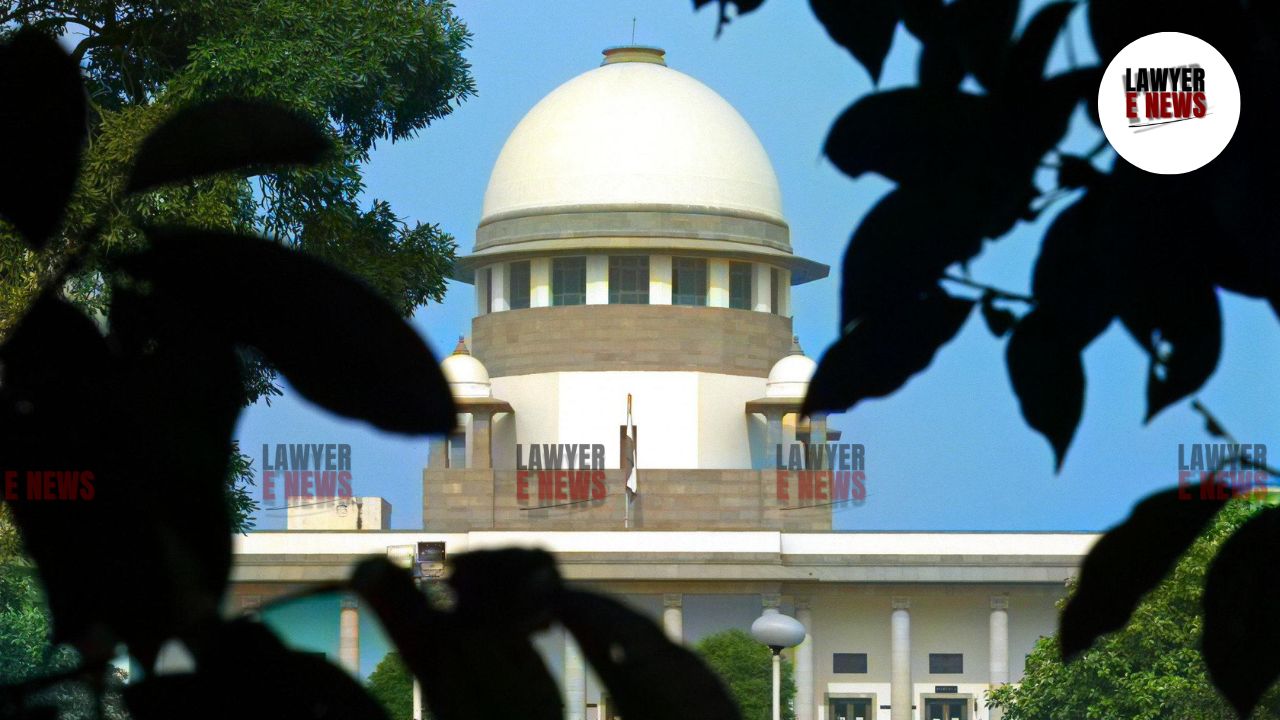-
by Admin
15 February 2026 2:36 AM



In a significant ruling Supreme Court of India overturned the Allahabad High Court’s decision to interfere with concurrent factual findings regarding the classification of disputed land as a pond (Johad). The apex court reinstated the findings of subordinate revenue authorities that had declared the land in question as a Johad, dismissing claims by the respondent, Khacheru, that it was Oosar land.
The bench of Justices C.T. Ravikumar and Sanjay Karol emphasized that the High Court, under its supervisory jurisdiction under Article 226 of the Constitution of India, cannot reappreciate evidence or substitute its own findings in the absence of perversity or illegality. The Court also upheld an ex-parte decree of permanent injunction, protecting the land's usage as a water reservoir by villagers, which the High Court had improperly overturned.
The Court noted that revenue records from as early as 1970 classified the land as a pond, a finding upheld by the Additional District Magistrate (ADM) and the Additional Commissioner. Both authorities had determined that the patta relied upon by the respondent was fictitious and that the disputed land was excluded from the consolidation scheme due to its use as a water reservoir.
"The High Court exceeded its jurisdiction under Article 226 by reappreciating evidence and reversing concurrent factual findings without any evidence of perversity or illegality."
Citing precedents such as Chandavarkar Sita Ratna Rao v. Ashalata S. Guram (1986) and Shamshad Ahmad v. Tilak Raj Bajaj (2008), the Court reiterated that High Courts cannot act as appellate courts to reweigh evidence or substitute their findings for those of subordinate authorities.
"Unless there is grave miscarriage of justice or jurisdictional overreach, High Courts should refrain from interfering with well-founded factual findings of lower authorities," the bench ruled.
The Supreme Court criticized the High Court for dismissing an ex-parte decree of permanent injunction issued by a Civil Judge, which restrained the respondent from interfering with the pond's use. The Court held that the injunction, granted after independent consideration, could not be automatically invalidated merely because the ADM’s order was overturned.
"A permanent injunction is an order of substance and cannot be set aside in such a cursory and callous manner, especially under supervisory jurisdiction."
The dispute arose over Khasra No.103 (previously Khasra No.84), which had been classified as a pond (Johad) in 1970. The respondent, Khacheru, claimed ownership of the land based on a patta allegedly issued in 1981-82, asserting that the land was Oosar (barren) and had been misclassified as a pond.
The patta relied upon by Khacheru was fictitious, with no record of its allotment in the tehsil office.
Revenue records and reports from the Tehsildar confirmed the land’s classification as a Johad used by villagers for water storage.
These findings were upheld by the Additional Commissioner and in subsequent review proceedings. An ex-parte permanent injunction was also issued by the Civil Judge, prohibiting Khacheru from disturbing the pond’s use.
However, the High Court, in writ proceedings, reversed these findings, accepting the respondent’s contention that the land had been mistakenly recorded as a pond.
The Court reinstated the ADM’s and Additional Commissioner’s findings that the land was a Johad, based on documentary evidence and the non-availability of records proving the alleged patta. It rejected the respondent’s argument that the land was Oosar, terming the High Court's conclusions baseless.
The apex court criticized the High Court for rendering the injunction ineffective without substantive reasoning. It held that the injunction was independently valid and could not be summarily dismissed.
The Court underscored the limited role of High Courts in reviewing factual findings under Article 226, reiterating that supervisory jurisdiction is not an appellate remedy.
"The High Court’s role is to ensure that subordinate authorities act within their jurisdiction and do not commit gross errors of law or procedure. It is not a forum for relitigation of factual disputes," the bench concluded.
The Supreme Court allowed the appeals, setting aside the High Court's orders and restoring the subordinate authorities' findings that the land was a pond (Johad). This judgment reinforces the principle that High Courts must exercise restraint while exercising writ jurisdiction and respect well-reasoned findings of fact by lower authorities.
Date of Decision: January 2, 2025
